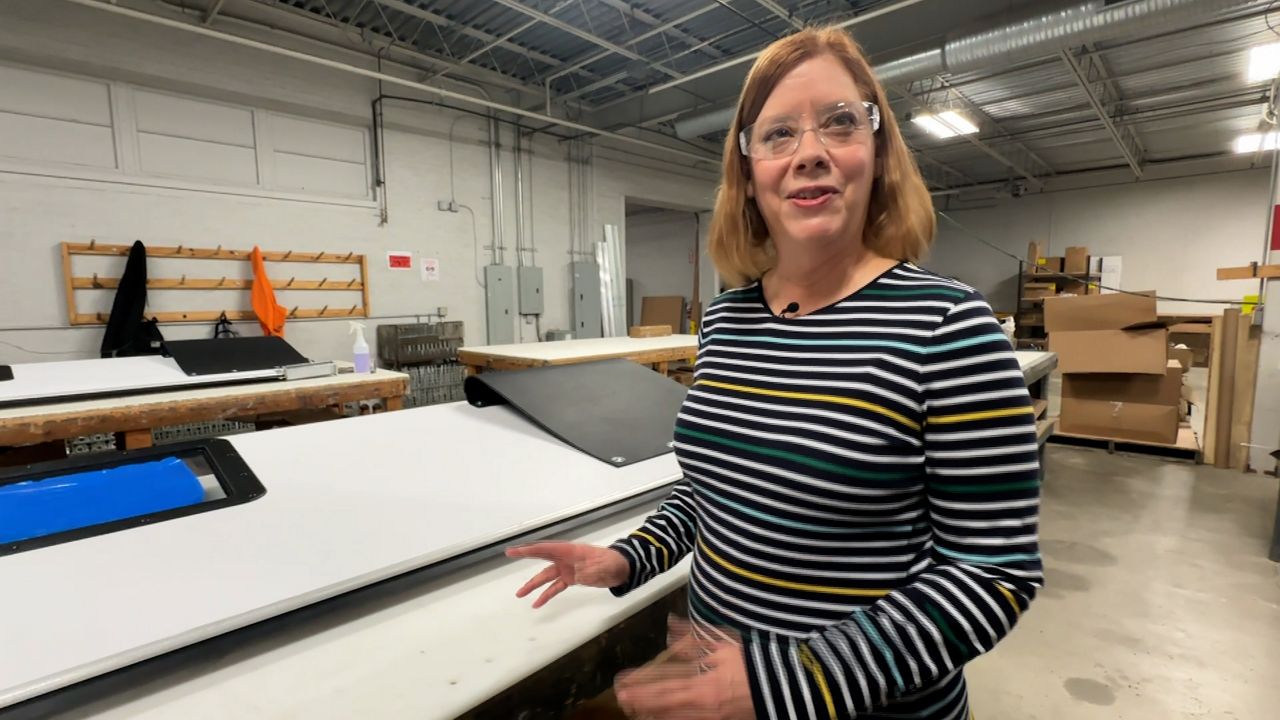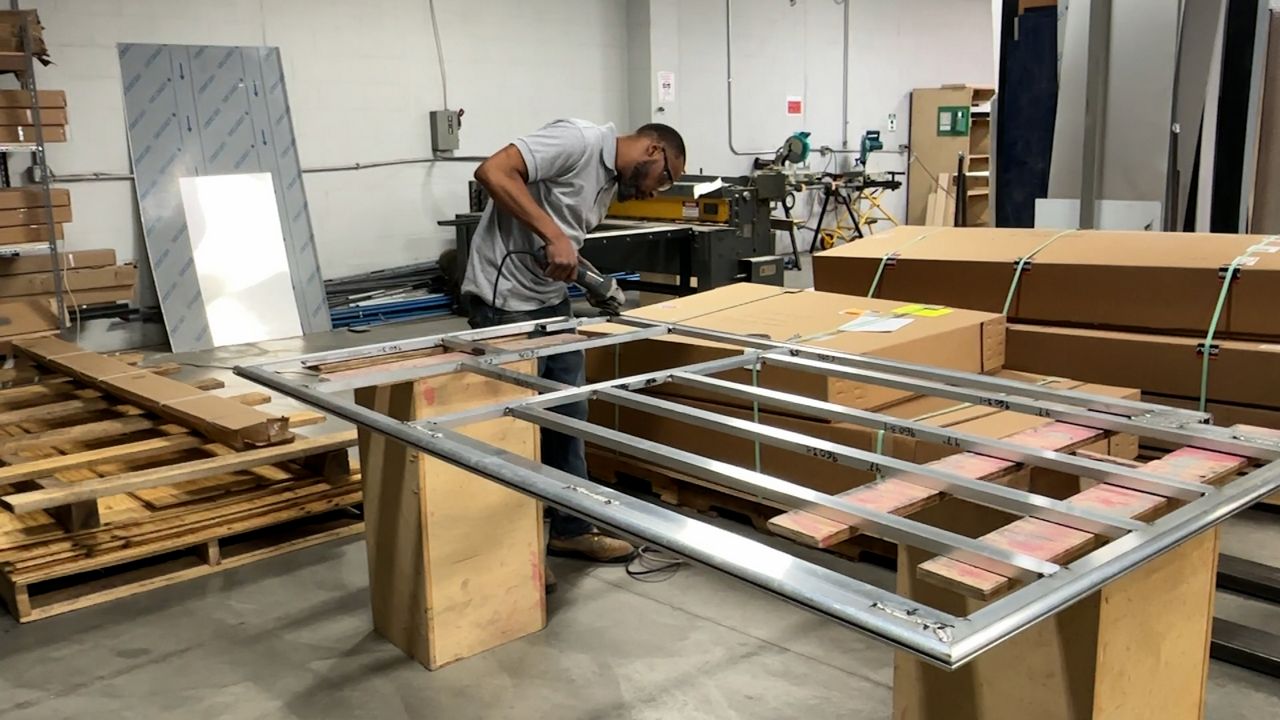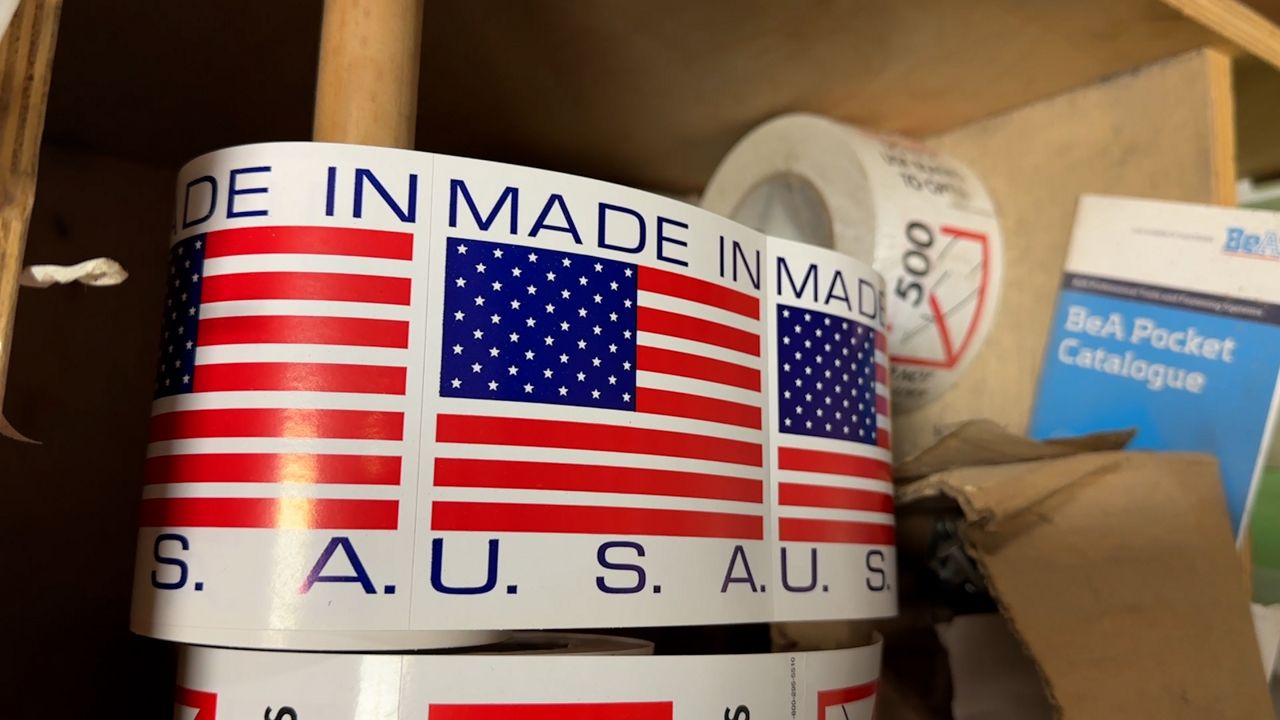CINCINNATI — As the new administration has taken over in Washington, D.C., there are decisions being made that are impacting us here at home, including small businesses. One local manufacturing business shares their concerns and hopes with the new administration and how one company is helping bridge the gap between the government and small businesses.
It’s all hands on deck at National Access Design as thousands of traffic doors are constructed.
For Cheryl White, she’s been in the business for over 40 years.
“It’s in my blood and I love them," White said.

But each time there’s a new administration, there’s always cause for concern about how the transition will impact her small business.

“Everything's going up right at the moment," White said. "I haven't released our new, our 2025 price list because I'm waiting to see what's about to happen. So, kind of on a holding pattern at the moment while we see what happens.”
Which is why Goldman Sachs created the Small Business Policy Playbook for Congress and the new government to outline how to work together to allow small businesses to thrive.
“There are a lot of new faces in Washington, D.C. right now. There are new folks in the administration, lots of new faces in Congress, including two new senators from Ohio," Janetta King, the Midwest Regional director of Goldman Sachs 10,000 Small Businesses Voices Program, said. "What we wanted to do, on behalf of our small businesses and our 10,000 small businesses voices community, is just to be ready to work with those policymakers.”
The playbook focuses on three main pain points for businesses: workforce, cost of businesses and innovation and opportunity.
“Because small business issues are bipartisan issues, I think there's real hope that we're going to be able to work with the cabinet agencies or the administration, whomever is working on these committees that we feel are important," King said. "We have in the past, we feel encouraged that we'll be able to do that in the future.”
For White she’s had to adjust her business plan because of cost of business.
“What happened in the past few years, we had to raise our inventory," White said. "Bringing in additional quantities of material. And that's how we're meeting the increased cost is by raising our volume that we're buying.”

And since nearly all of the products for White’s business are from the U.S, she says she’s not too worried about any new tariffs put in place by the new administration. She says she’s hopeful she can continue to grow over the next four years.
“I am confident that I’m not coming to an end any time soon," she said. "I just have so many more areas to expand upon.”



